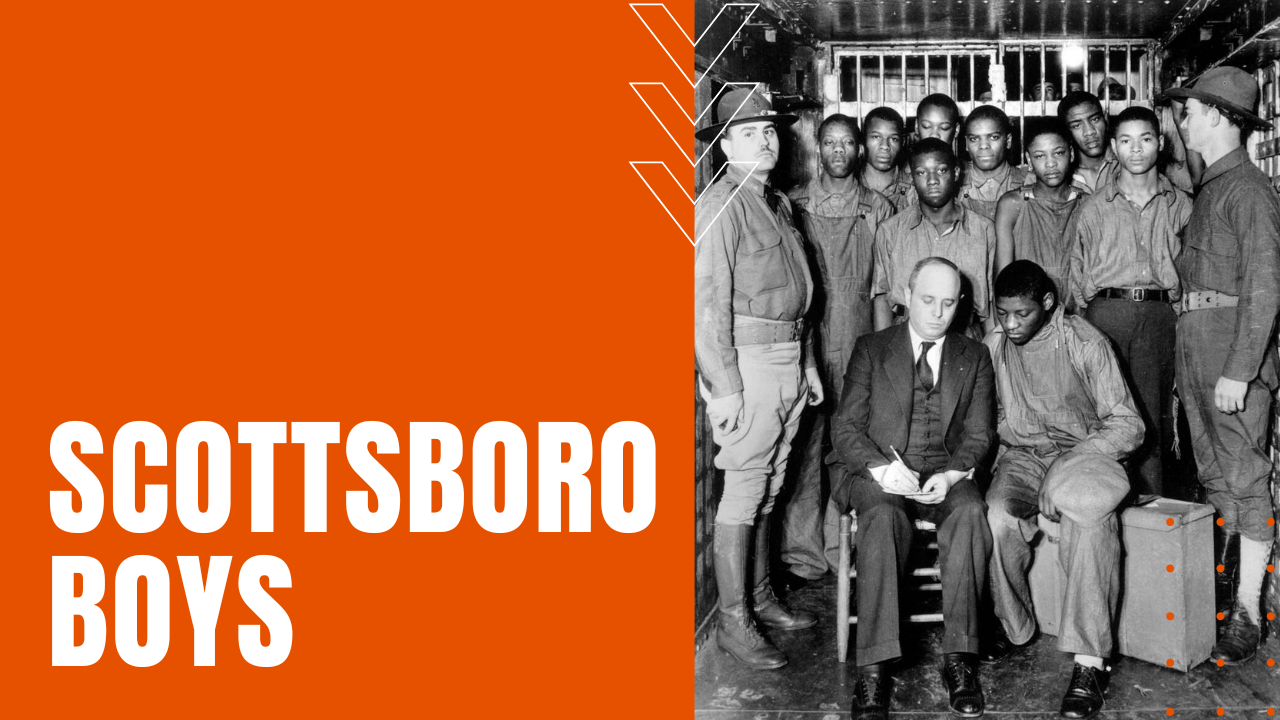The Scottsboro Boys

During the darkest days of the Great Depression, desperate men and women hitched rides on freight trans in search of work, and when a fight broke out on a freight train in 1931 Scottsboro Alabama, police arrested nine Black teenagers after two white women accused the boys of raping them on the train.
Angry Lynch Mob
In a case mired in the Jim Crow South, when news got out about the nine accused teenagers, an angry white mob descended upon the Scottsboro jail, prompting a local sheriff to call in the Alabama National Guard over fears of an impending lynching. In April of that same year, an all-white, all-male jury returned lightning-fast guilty verdicts for what became known as the Scottsboro Boys, handing down the death penalty to eight, while 13-year-old Leroy Wright’s trial resulted in a hung jury when one jurists favored a lesser sentence of life in prison.
Enter the Communist Party
As news of the shaky convictions spread around the world, the boy’s fate became a rallying cry for the International Labor Defense—the legal wing of the American Communist Party—leading to international demonstrations against Southern style racism, and after the Alabama Supreme Court upheld the convictions of seven defendants in March of 1932, the U.S. Supreme Court ruled in Powell v. Alabama, that the boy’s rights of due process under the 14th Amendment had been violated.
Victim Recants Testimony
After avowed rape victim Ruby Bates recanted much of her original testimony, the Scottsboro Boys continued their legal appeals through the Alabama court system, leading to a second trip to the U.S. Supreme Court in January of 1935, when the court again overturned the guilty verdicts in Norris v. Alabama, citing the systematic exclusion of Blacks from Alabama juries—a landmark decision which helped to integrate future juries across the United States.
International Condemnation
Despite clear evidence regarding the boy’s innocence, the recurring trials brought international condemnation of the South’s racist bias against Blacks, inspiring numerous books, songs, films and stage plays about the boy’s unjust imprisonment, including a clear link to Harper Lee’s classic novel, To Kill A Mockingbird, making the Scottsboro Boys, an early ignition point in the civil rights movement to come.
